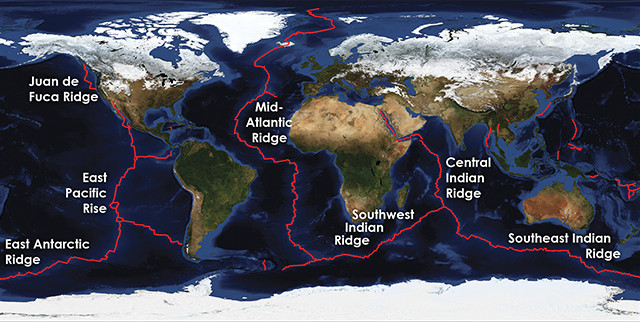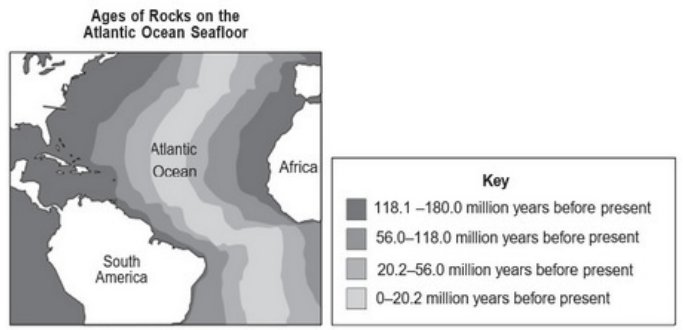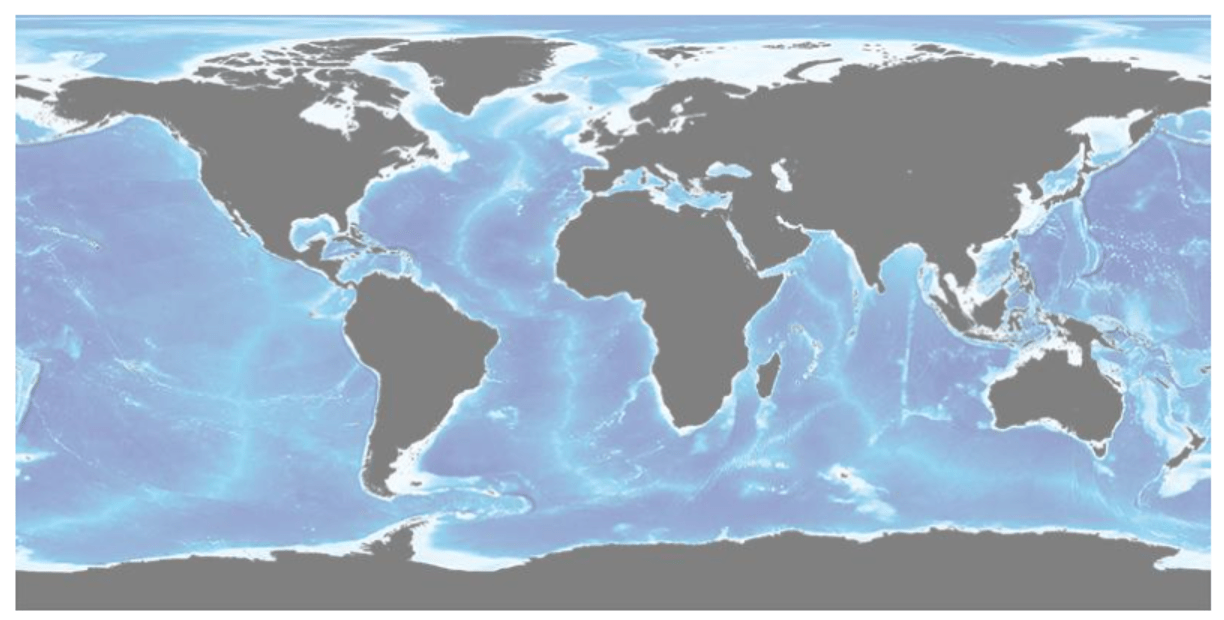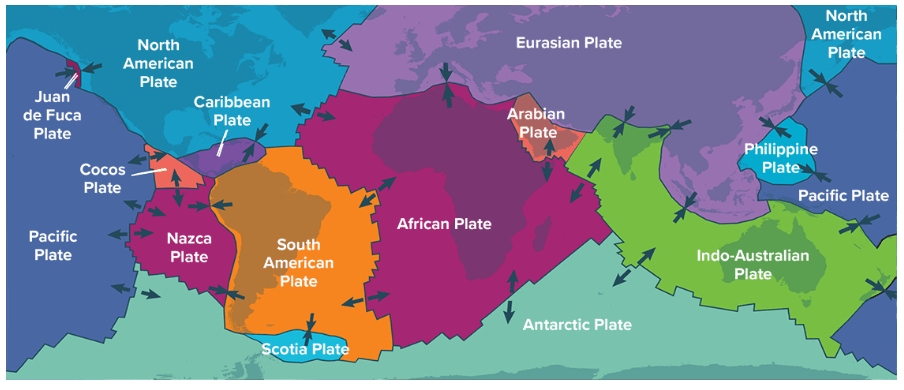What tectonic plate do you live on?
North American Plate
True or False?
As new seafloor moves away from an ocean ridge, the seafloor cools and becomes less dense than the material beneath it.
False
Which of the following best explains the age of oceanic crust and ocean-floor features?
A) seafloor spreading
B) continental drift
C) subduction
D) crystallization
A) seafloor spreading
Why did Alfred Wegener's peers not believe his theory?
There was no mechanism to explain how the continents drifted.
The theory of __________ explains how new crust is created at mid-ocean ridges.
seafloor spreading
Where is the nearest mid-ocean ridge to us?

East Pacific Rise
The youngest rocks on the ocean floor are located ____.
A) near continents
B) at mid-ocean ridges
C) far from mid-ocean ridges
D) near Asia
B) at mid-ocean ridges
The map shows the ages of rocks found on the Atlantic Ocean seafloor. Identify the process that causes the pattern of rock data shown in the map.

Plate tectonics or seafloor spreading
What does Pangaea mean?
All Earth
The Atlantic Ocean is ______.
a.) shrinking
b.) growing
b.) growing

The map shows the age of the rocks on the seafloor. Explain what pattern you observe of the age in the rocks. (Hint: Look at the colored bands)
The colored bands are symmetrical (mirroring) on either side of a mid-ocean ridge.
New ocean crust is continually formed at ____.
A) mid-ocean ridges
B) trenches
C) subduction zones
D) ocean basins
A) mid-ocean ridges
The age of the ocean floor the FARTHER you get from the mid-ocean ridge is _______.
a.) younger
b.) the same
c.) older
c.) older
What did Alfred Wegener call his theory?
Continental Drift Theory
Strike-Slip Plates move in what direction?
a.) Towards one another
b.) Away from one another
c.) Past one another
c.) Past one another

Examine the map above. The different colors indicate changes in water depths. Light blue indicates shallower depths; dark blue indicates deeper depths.
What can we conclude that the seafloor has?
Ocean Trenches and Mid-Ocean Ridges
What new technology was used to map the seafloor beginning in the 1940s and 1950s?
sound waves on moving ships
The Theory of Continental Drift and the Theory of Sea-Floor Spreading were combined to form what theory?
a.) Theory of Plate Tectonics
b.) Theory of Pangaea
c.) Theory of Convection Movement
a.) Theory of Plate Tectonics
What did Harry Hess discover about the ocean floor?
Not flat, and covered with landforms like mountains and canyons
Why are Earthquakes important?
a.) They allowed us to define the boundaries between plates
b.) They tell us how long the Earth moved.
a.) They allowed us to define the boundaries between plates



What patterns do you observe between the three maps?
The mid-ocean ridges and plates line-up on the same location.
How does a mid-ocean ridge form?
As the seafloor spreads apart, magma moves upward and flows from the cracks. It becomes solid as it cools and forms new seafloor. As new seafloor moves away from the ridge, it cools, contracts, and becomes denser than the material below it. This dense, colder seafloor begins to sink, helping to form the mid-ocean ridge.
About how many years ago was Pangaea around?
a.) 250 Million Years ago
b.) 250 Thousand Years Ago
c.) 250 Years Ago
a.) 250 Million Years ago
What is the process that recycles old crust (by pulling it back into the mantle) called?
a.) induction
b.) subduction
c.) conduction
b.) subduction
A continent travels 0.006 m/year. How long would it take the continent to travel 100 m.
Time = (Distance)/(Rate)
Time = (100m)/(0.006m)
16,667 years